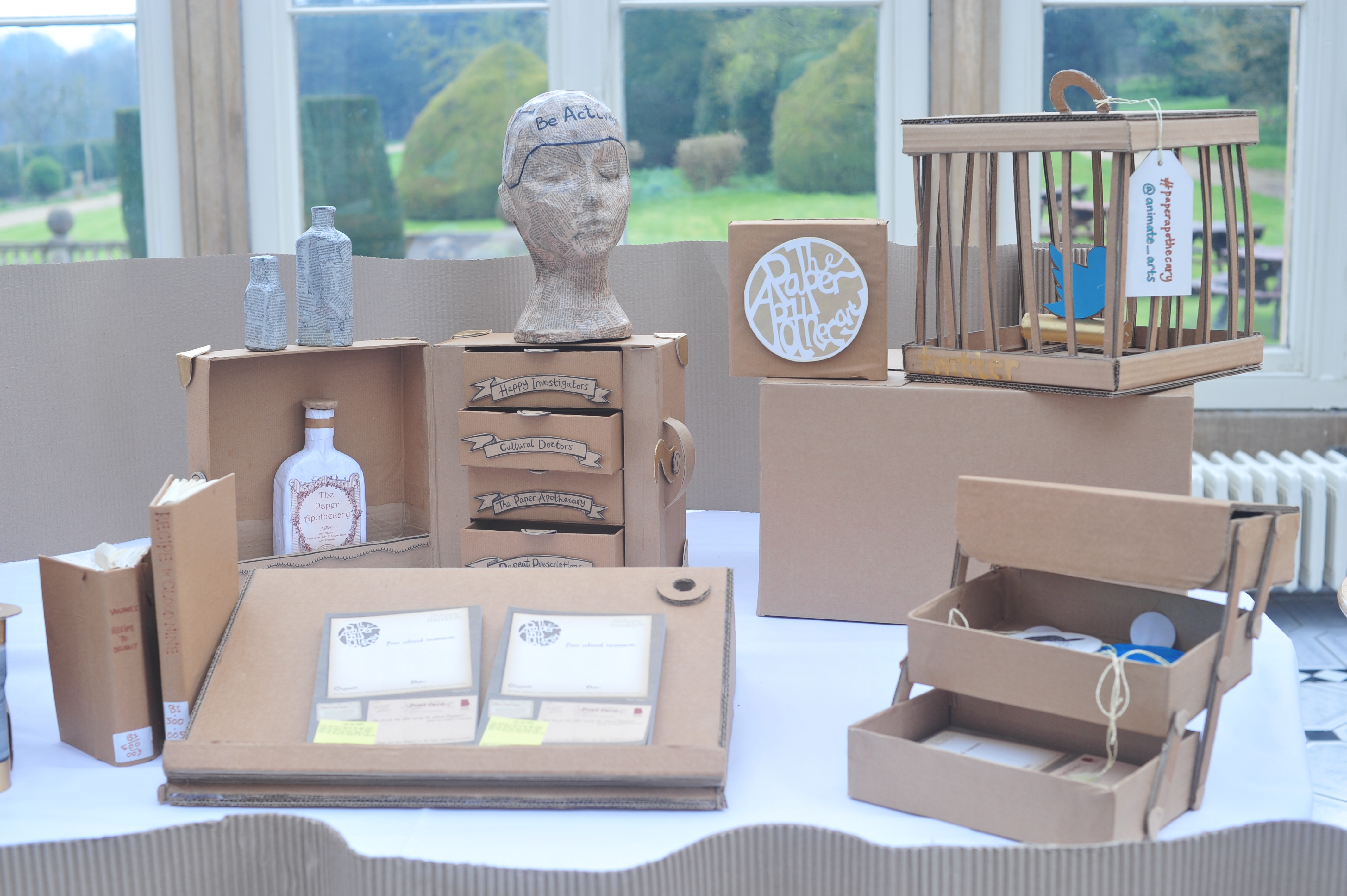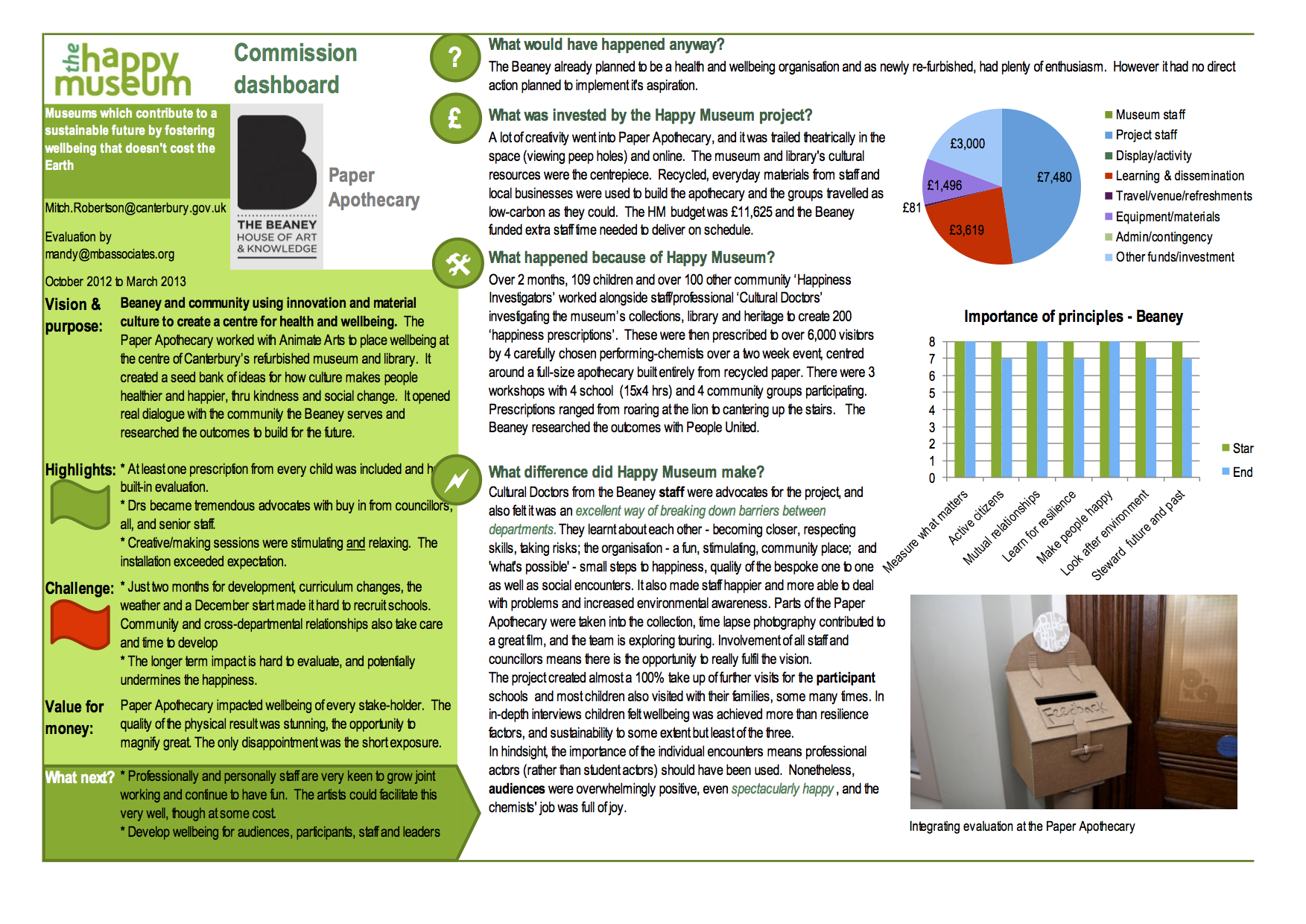The Paper Apothecary – Beaney House

Beaney House of Art and Knowledge, Canterbury, The Paper Apothecary, October 2012-March 2014
The Paper Apothecary (created by with artist performers Animate Arts) placed wellbeing at the centre of Canterbury’s museum and library, the Beaney House of Art and Knowledge.
A full-size apothecary built entirely from paper, acted as a catalyst to create ideas for how The Beaney can engage in real dialogues with the community it serves. 250 ‘Happiness Investigators’ and ‘Cultural Doctors’, including 120 school children, investigated the museum’s collections, library and heritage and issued ‘happiness prescriptions’ and explored how contact with cultural experiences can kick start healthier and happier communities.
The Beaney also works with People United, to research how the arts inspire kindness, community and social change.

Extract from the full Happy Museum Evaluation Report 2014
Vision & Purpose
Our vision was for the Beaney and the community to use innovation and material culture to create a centre for health and wellbeing. The Paper Apothecary worked with Animate Arts to place wellbeing at the centre of Canterbury’s refurbished museum and library. We created a seed bank of ideas for ways in which culture can make people healthier and happier, through kindness and social change. The Paper Apothecary opened real dialogue with the community the Beaney serves and researched outcomes to build on for the future.
Highlights
- At least one prescription from every child was included and had built-in evaluation.
- Doctors became tremendous advocates of the project with support from councillors, and senior staff.
- Creative/making sessions were stimulating and relaxing.
- The installation exceeded expectations.
Challenges
- Just two months for development, curriculum changes, the weather and a December start made it hard to recruit schools.
- Community and cross-departmental relationships also take care and time to develop.
- The longer term impact is hard to evaluate, and potentially undermines the happiness.
The Beaney House and the Paper Apothecary exhibition were nominated for the prestigious Collections Trust Award in 2013.
One impact of the Happy Museum Commission is Canterbury Museums and Galleries now include promoting wellbeing in its strategy. A stated aim of the city’s cultural institutions is now to: “Act as a catalyst for social change, contributing to the quality of people’s lives and the wellbeing of local communities.” The 2013 strategy document states: “We know that museums have the power to help promote good and active citizenship, and that we can play a significant role in supporting our users’ health and mental wellbeing as well as enhancing creative ability and academic performance.”

